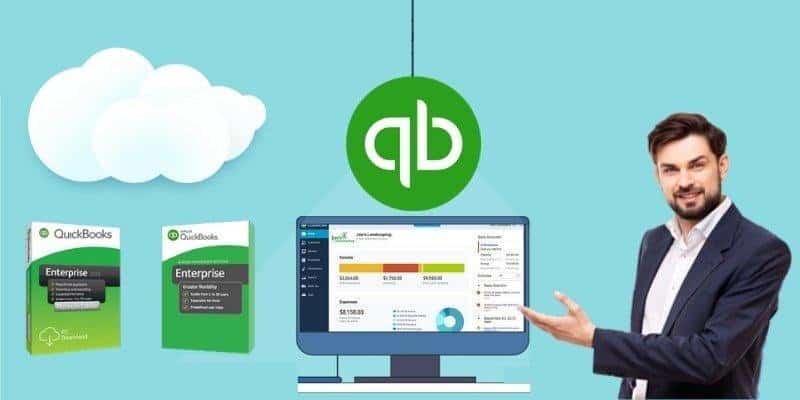
5 Businesses That Can Benefit from the ERP System
Several businesses require unique QuickBooks Enterprise Hosting solutions, tailored to their company and individual needs. However, in the present day, companies turn to enterprise resource planning applications vigorously, as it helps to integrate all of their processed data into a single system. An ERP application is a coveted syncing tool, with a lower operating cost and quite a few customizable modules. Enterprise Resource Planning, or ERP system, is becoming a preferred option not just for the enterprises, but for small and medium businesses as well, given how it integrates all the aspects of a company with each other.
Let’s talk about some important businesses, which can hugely draw benefits from the ERP System:
1. Manufacturing Business
The manufacturing sector significantly drives the global economy and its development. It gives owners an edge when synced with the latest technology with an open approach. A manufacturing business is thrown at several curveballs in terms of timely delivery of products, for which it has to handle and maneuver over multiple aspects. From tracking a worker’s service hours to monitoring the company’s inventory, even purchasing of raw materials for production, all of these various aspects are to be linked with each other to ensure a seamless flow along the line.
This is where ERP systems come into play; they are a one-stop solution for such needs. They track a worker’s hours keeping their productivity in check, help to optimize raw materials management, and hence cut down cost on the liability side of the organization. They also keep a check on the quality and quantity of the raw material purchased. Using ERP Systems helps in better time management by automating invoice filling and product monitoring.
2. Wholesale Business
The concept of demand and supply is the major driving factor for the wholesale industry. A business can incur heavy losses in case of inappropriate demand and supply rationing. An increased demand that is unable to be met by the company, as well as an overhaul of goods, both can prove to be malicious for the organization. To avoid all bottlenecks in product distribution and to keep a check on the demand and supply trend, is an inevitable task for such wholesale businesses.
An ERP system makes this an easy process. It is designed to fit into such needs precisely. An ERP solution is designed to help keep track of inventory from multiple warehouses and restock it as per the demand. Product details, such as batch number, shelf life, the manufacturer and shipping information, and the cost incurred can be viewed on an integrated, synced portal. It also facilitates sales management and details of purchase orders, thus helping in better tracking of finances. Automated bill payments and invoice requests that come with ERP systems offer a centralized database to analyze the products.
3. Retail Business
In today’s retail-driven economy, huge benefits could be driven by an ERP system. Functions like inventory management, sales report generation, invoice, and customer information can be taken care of under ERP. It offers an integrated interface for all of these tasks to be achieved collectively. By channelling an efficient data flow, product performance can be tracked and analyzed quite well. Customer activities such as the frequency of buying a product and the preferential arrangement could be better scrutinized. Trends such as the quantity of product being purchased by a customer concerning time can also be analyzed by using solutions like ERP systems. Better integration of sales and accounting, time management to ensure performance efficacy is the outcome for retail businesses when dealing with ERP systems.
4. Healthcare Business
With a huge footfall and crunch of time, the last thing that the healthcare organizations require is a lag in retrieving patient information or any tampering with the ultra-confidential patient data. Every healthcare business aims to comply with the HIPAA guidelines and norms, and this is exactly where using ERP systems comes at hand. It helps to manage patient data, consisting of the medical history of the patient, their schedule for follow-up visits, and to integrate all the data with billing and the quota of attending a doctor. With the help of ERP software, the dataflow between all of these processes is synced.
5. Construction and Contracting Business
Upon taking a construction assignment, there are a lot of tasks that need to be kept in sync, like completing the project for the timely and prompt delivery under the allotted budget. The demand and supply of the building materials have to be kept on track, keeping in mind that the onsite office needs to be in absolute sync with the field officers and staff supervisors. Any discrepancy in such data might lead to huge losses being incurred by the contractors and business owners. This is precisely what the various ERP software professes in- syncing and integrating data and budgeting by estimating labor and equipment costs. The cost and quantity of raw materials can also be kept in check and analyzed by the help of this. Keeping in track the inventory and assessing all the bottleneck discrepancies that may arise during construction flow can be done by the supervisors and business owners. ERP also helps in managing payrolls of all the staff and the workers that are there on daily wages. It holds things and an endless number of transactions from going haywire.
Conclusion
As you might have realized along reading the article, no matter the business size or genre or industry, a robust ERP system comes handy on every occasion. As an answer to the constantly arising need for integrating employees and employers, and even the various wings of one business, an ERP system seems to be the best find. It is an industry-standard and a must-have to run the business seamlessly and increasing productivity concerning time.






